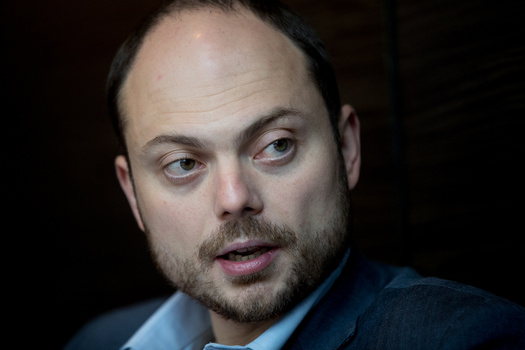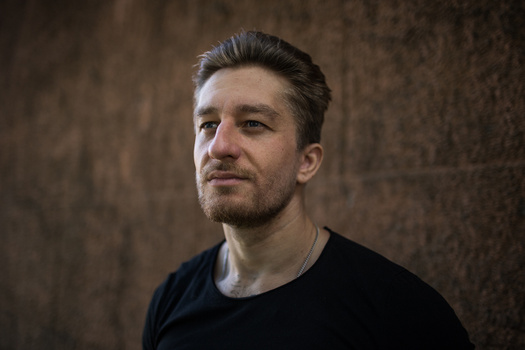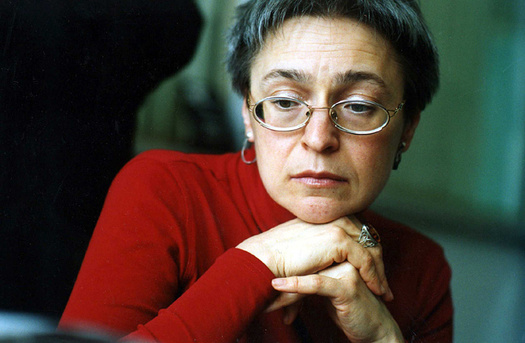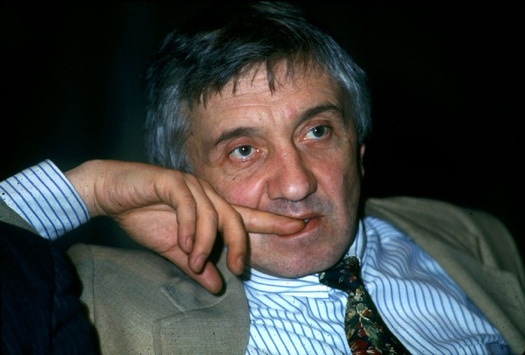Unexamined toxins Activists and journalists are frequently poisoned in Russia but the authorities almost never investigate these attacks. Here are five notorious cases that preceded Alexey Navalny’s recent hospitalization.
Мы говорим как есть не только про политику. Скачайте приложение.
Opposition politician and Anti-Corruption Foundation creator Alexey Navalny was hospitalized early on Thursday, August 20, in critical condition. At the time of this writing, he is in a coma and breathing through a ventilator. Doctors have yet to share a diagnosis to explain Navalny’s sudden illness, but signs suggest he was poisoned. Will the Russian authorities open a criminal investigation? If they do and if he was indeed poisoned, will the police find those responsible? Judging by past investigations of similar attacks, the chances are slim.
Pyotr Verzilov

What happened? On September 11, 2018, Mediazona publisher and “Pussy Riot” member Pyotr Verzilov was hospitalized at the Moscow Bakhrushin City Clinical Hospital’s toxico-intensive care unit in critical condition. He nearly lost his sight, speech, and mobility before he was transferred aboard an air ambulance to Charité Hospital in Berlin, where German doctors confirmed his family’s fears: his sudden illness was the result of acute poisoning. Specialists in Berlin were unable, however, to identify the exact substance.
Verzilov has since proposed two reasons officials in Russia might want him dead: his investigative work into the deaths of the Russian journalists Orkhan Dzhemal, Alexander Rastorguev, and Kirill Radchenko (who were murdered in the Central African Republic while trying to record footage of oligarch Evgeny Prigozhin’s activities in the area), or the stunt he organized through Pussy Riot during the 2018 FIFA World Cup in Moscow when he and other activists streaked across the soccer field during the championship game, dressed as law enforcement in an effort to draw attention to police brutality in Russia.
What did the authorities do about it? Immediately after Verzilov fell ill, his lawyer, Dmitry Dinze, filed a police report, requesting a formal investigation. In October 2019, more than a year later, he finally got a response: no. State prosecutors later overturned this decision and an investigation began, but officials have yet to bring any charges. Instead, Verzilov himself is now under criminal investigation for allegedly concealing his Canadian citizenship.
Vladimir Kara-Murza

What happened? On May 26, 2015, opposition activist and journalist Vladimir Kara-Murza was hospitalized with “acute kidney failure.” His condition was so serious that doctors repeatedly transferred him to different clinics, as physicians worked desperately to understand his illness. After his kidneys, heart, and lungs began to fail, he slipped into a coma. His lawyer, Vadim Prokhorov, says one doctor brought in to examine Kara-Murza estimated the probability of his survival at 5 percent. Within a few days, however, Kara-Murza started getting better. A subsequent examination conducted by French specialists found raised concentrations of heavy metals in his body. Kara-Murza believes he was poisoned with a substance accessible only to Russia’s intelligence services.
In February 2017, Kara-Murza was hospitalized again with similar symptoms and placed in a medically induced coma. According to chief physician Denis Protsenko (who would become widely known to Russians three years later as the head of Moscow’s “Kommunarka” COVID-19 hospital), Kara-Murza’s new illness was possibly “a repeat of the previous situation,” but he argued against speculation that the cause was poison. Dr. Protsenko also said Kara-Murza’s 2015 incident wasn’t likely a poisoning. “Two years ago, the world’s leading toxicological laboratories detected no presence or traces of any substances. Our specialists have found nothing now, either,” he explained.
What did the authorities do about it? In December 2015, six months after Kara-Murza’s first hospitalization, he filed a police report claiming that someone had tried to kill him out of political and ideological hatred. Russia’s Investigative Committee rejected the request. A year after the second hospitalization, in 2018, investigators opened an inquiry and questioned both Kara-Murza and his wife, Evgeniya. The FBI in the United States also investigated the second illness, but the bloodwork results based on samples provided by Kara-Murza’s family were classified. Kara-Murza is still trying to obtain these records through litigation in the U.S.
Sergey Mokhov

What happened? Late on November 25, 2016, well-known anthropologist Sergey Mokhov (who is also married to opposition politician and Navalny ally Lyubov Sobol) was attacked inside his apartment building in Moscow. The assailant — an unfamiliar young man — ran up to him and injected him in the thigh with an unknown liquid. Mokhov managed to telephone his wife and ask her to call for an ambulance before he passed out. Paramedics brought him to the Sklifosovsky Institute, where his condition quickly improved, according to his wife, but doctors were unable to identify whatever had been injected into him. Physicians said the substance disintegrated quickly inside his body. That night, Mokhov experienced dizziness and muscle aches, but his life was never in jeopardy.
Sobol and Navalny later speculated that the attack was maybe connected to their investigations into the illicit business dealings of Evgeny Prigozhin, a catering magnate with notoriously close ties to the Kremlin. Media outlets controlled by Prigozhin promoted theories that Mokhov’s poisoning was staged. Mokhov, meanwhile, says he doesn’t rule out that the attack was related to his investigations into corruption in Moscow’s funeral business.
What did the authorities do about it? The police spent about six weeks reviewing available materials before declining to open a criminal case.
Anna Politkovskaya

What happened? On September 1, 2004, Chechen terrorists seized an elementary school in Beslan. Learning about the standoff, Novaya Gazeta journalist Anna Politkovskaya decided to fly to the area, hoping to act as a negotiator and possibly involve self-proclaimed rebel leader Aslan Maskhadov in a resolution. She said the Chechen separatists were signing their own death sentence by committing an act of such “unprecedented cruelty” and she hoped to talk them down. By this time, Politkovskaya was already world-famous for investigative reports about corruption in the Russian Army and war crimes in Chechnya.
On the plane to Rostov-on-Don, Politkovskaya declined the inflight meal and asked only for tea. Within minutes of drinking the beverage, she became violently ill. When the plane landed, she was rushed to the hospital and critical condition. According to the airline “Karat,” which operated Politkovskaya’s flight, she could not have become ill from the inflight tea because she was served from the same pot as other passengers and she was the only one who complained of discomfort afterward. Politkovskaya accused three FSB agents, supposedly disguised as ordinary business-class passengers, of poisoning her.
Poisoned tea was used to kill former FSB agent Alexander Litvinenko, who died in London in 2006. British investigators concluded that Litvinenko consumed a cup of tea mixed with radioactive polonium-210.
Two years later, Politkovskaya was shot and killed in her apartment building in Moscow.
What did the authorities do about it? State prosecutors refused to open an attempted murder case, finding no evidence of any crime in Politkovskaya’s illness.
Yuri Shchekochikhin

What happened? On June 3, 2003, Novaya Gazeta journalist and former liberal lawmaker Yuri Shchekochikhin died in Moscow. He made a name for himself in the press with articles about infighting between law enforcement agencies and also his vocal criticism of the special forces agents who stormed the Dubrovka Theater during the hostage crisis with Chechen terrorists in 2002 that resulted in the deaths of more than 125 people. In an investigative report on Shchekochikhin’s death, Novaya Gazeta deputy chief editor Sergey Sokolov wrote: “In two weeks, someone in his fifties transformed into an old man [...]. One after another, his internal organs failed, his skin fell off in clumps, he lost his hair, his whole body burned as if it had been through fire, and he found it impossible to breathe because he felt like molten metal was pouring down his throat.” Novaya Gazeta journalists later hypothesized that Shchekochikhin was killed with the same toxin used to poison Sergey and Yulia Skripal — “Novichok.”
What did the authorities do about it? Officials opened and closed the investigation into Shchekochikhin’s death multiple times. In April 2009, for example, investigators first closed the murder case after roughly 12 months “due to the absence of a criminal act.” A year later, officials reopened the case, citing new data,” only to close it again later, once more “due to the absence of a criminal act.”
Text by Dmitry Kartsev
Translation by Kevin Rothrock